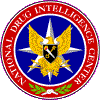ARCHIVED
![]() To Contents
To Previous Page
To Next Page
To Publications Page
To
Home Page
To Contents
To Previous Page
To Next Page
To Publications Page
To
Home Page

|
National Drug
Intelligence Center Lake County High Intensity Drug Trafficking Area Drug Market Analysis April 2007 ProductionIllicit drug production in Lake County is limited to crack conversion, which typically takes place in urban areas, and to a much lesser extent, methamphetamine production, which takes place in the rural areas of the county. Mexican DTO members typically transport powder cocaine in large quantities to Lake County in order to avoid the harsh federal criminal penalties associated with trafficking crack cocaine. Once in Lake County, powder cocaine is distributed to street gang members, who "cook" it into crack cocaine and distribute it primarily in metropolitan areas of the county. Methamphetamine production in the Lake County HIDTA region is limited
and is typically confined to rural areas in the southern half of the
county. According to National Clandestine Laboratory Seizure System (NCLSS)
data, a total of seven powder methamphetamine laboratories were seized
in Lake County during the past 5 years; only one laboratory was seized
in 2006. Methamphetamine production in Lake County became increasingly
difficult in July 2005 with enactment of the statewide Methamphetamine
Protection Act, which restricts over-the-counter sales of medications
TransportationLake County's well-developed transportation infrastructure and proximity to Chicago, a national-level distribution center for cocaine, heroin, and marijuana, make it a key transportation and transshipment center for illicit drugs. Millions of tons of commercial truck freight and more than 1 million commercial and passenger vehicles transit the HIDTA region along Interstates 80/94, 90, and 65 each week. Well-organized and sophisticated Mexican DTOs primarily use independently owned commercial trucks and private vehicles to transship multihundred-kilogram quantities of cocaine and marijuana and multikilogram quantities of heroin, often concealed in hidden compartments and commingled in shipments of legitimate goods, from the Southwest Border area into and through Lake County. Most of these illicit drugs are destined for other drug markets, including Chicago and markets in the eastern part of the United States; however, some quantities are offloaded in Lake County for local distribution. Moreover, Mexican DTOs increasingly transport polydrug shipments of cocaine, marijuana, and heroin into the Lake County HIDTA region for distribution to markets throughout the eastern United States. |
End of page.